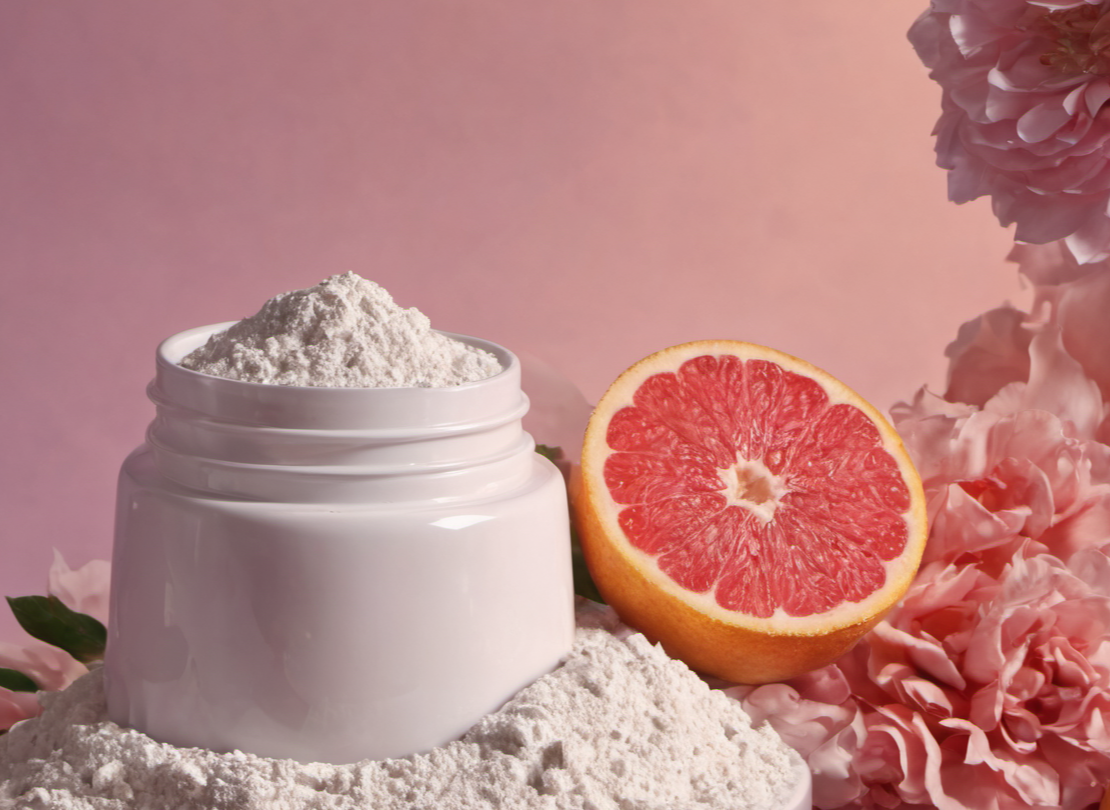Should I be taking collagen?
Collagen powders can be found in every health food store and in recent years received a lot of attention! Claims of benefits span a large spectrum including improvement in gut health, bone health, sleep, wrinkles, joints pain, and more. But what does the science actually say about collagen supplements?
Collagen 101
What are the proven benefits of collagen? Let’s look at the research!
Skin Health
A lot of efforts have been made to determine the effect of collagen supplementation on skin health. In a 2021 meta-analysis published in the Journal of Dermatology, authors compared 19 studies totaling 1,125 participants ranging in age from 20 to 70 years old. On average, the authors concluded that there were statistically significant improvements in skin density, skin thickness, and moisture content with collagen supplementation. However, the global averages from all studies did not show large differences in skin elasticity, wrinkles, or transepidermal water loss when compared with placebo groups.3
Sleep Quality
In a 2023 study on active males with trouble sleeping, the use of collagen for 7 days (15g/day) reduced the number of times men woke up during the night compared to the placebo group. Collagen supplementation did not necessarily improve sleep quality (for example, minutes in REM or total sleep time), however these are very interesting preliminary results for how collagen can affect sleep. The study also found improved scores on cognitive tests for those taking a collagen supplement when compared to the placebo group.4 It would be interesting to see more longer term studies looking at potential sleep benefits of collagen!
Osteoarthritis & Joint Pain
In a 2019 review of 5 randomized placebo controlled trials, collagen supplementation reduced WOMAC index, a questionnaire used by healthcare professionals to evaluate severity of patients with osteoarthritis/joint pain. In particular, a notable difference was seen through improvements of the stiffness score. Pain and functional limitation scores did not change significantly.5
Muscle Recovery
A 2021 analysis published in the Amino Acids compared 15 randomized control trials on collagen supplementation for joint pain after injury, body composition, muscle soreness/recovery, and muscle protein synthesis. The study showed that improvements were made in body composition, strength, and muscle recovery, however, collagen did not have a significant impact when compared to higher quality proteins6. In addition, changes in body composition and strength were more prominent in elderly sarcopenic men compared to young active participants.2 Though some improvements were shown, it is difficult to decouple the effects of collagen from vitamin C and exercise, as many of the studies looked at these synergistic effects. It is typically regarded that consuming a complete protein is best for enhancing muscle recovery.
Bone Density
One 2018 study looked at the effect of collagen supplementation on bone mineral density in 102 postmenopausal women who had experienced age related reductions in bone density. The study demonstrated increased bone mineral density after 1 year of 5g/day collagen supplementation. Additionally, the women experienced a positive shift in bone markers, indicating reductions in bone degradation. Spinal T-score (the lower the T-score, the lower your bone mineral density) improved by +0.1 ± 0.26 for the collagen supplement group where the T-score decreased by −0.03 ± 0.18 for the placebo group.7
FAQ's about collagen
Despite some claims about collagen promoting gut health, there is not much evidence of this in scientific literature. Another important note to consider is that in many of these studies, it has not been proven that the seen benefits are from collagen specifically or from increased protein intake in general. Many of these studies attribute the positive benefits to only collagen, however, some are also administered with other interventions such as vitamin C, hyaluronic acid, coenzyme Q-10, or exercise. More research is needed to determine the synergism of other vitamins and supplements and exercise in conjunction with collagen.
The major downside to collagen is that since it is not a complete protein, it is not best for muscle recovery. Over 50% of collagen is made of non essential amino acids. This means that your body can produce these amino acids on its own. When looking for a protein supplement to support muscle growth and recovery, it is advised that you find a protein source that is high in essential amino acids (histidine, isoleucine, leucine, lysine, methionine, phenylalanine, threonine, tryptophan, and valine). Essential amino acids are not made by our body and therefore are necessary to consume through food.
Another important thing to note is that even though the source of collagen is from skin, bones, and connective tissue, this does not mean that the collagen that we consume will go to our skin, bones, and connective tissue. When we consume collagen, like other protein sources, it is broken down into amino acids that our bodies can use as needed. Prioritize getting sufficient complete protein. That being said, if you have a specific issue that you are trying to address, such as bone density or arthritis, collagen could be worth trying in addition to resistance training and adequate protein intake!
All this being said, there are some instances where people can improve their health with collagen supplements. So what should you look for?
- Hydrolyzed collagen (more bioavailable)
- NSF or Informed Choice certified
- Organic grass fed sources (bovine)
- 10-15 grams/day
A few that we like are linked below!
My Two Cents!
There are a lot of claims about collagen that are supported by scientific studies. However, more studies are needed to see if the effects are the result of collagen alone, or due to an increase in protein consumption in general. Most people are probably better off prioritizing complete protein sources that include these amino acids as well as amino acids that support muscle growth. We recommend first focusing on obtaining enough complete protein (chicken, beef, fish, whey protein concentrate, ect) before adding collagen to your routine. If you are someone who is eating enough complete protein in your diet for muscle retention (0.6-1g per pound body weight depending on your goals), and still want to optimize your skin/bone health then give collagen a try! Taking the current research into consideration, collagen supplementation could provide some nutritional benefit when added to a diet not compromising on essential amino acids. In particular, collagen supplementation seems to be most effective in older populations, for example postmenopausal women with low bone mineral density and elderly men with sarcopenia, or stiff joints. Let us know what you think about collagen supplementation!
Interested in reading more? Here’s our references!
- Paul C, Leser S, Oesser S. Significant Amounts of Functional Collagen Peptides Can Be Incorporated in the Diet While Maintaining Indispensable Amino Acid Balance. Nutrients. 2019;11(5):1079. Published 2019 May 15. doi:10.3390/nu11051079
- Zdzieblik D, Oesser S, Baumstark MW, Gollhofer A, König D. Collagen peptide supplementation in combination with resistance training improves body composition and increases muscle strength in elderly sarcopenic men: a randomised controlled trial. Br J Nutr. 2015;114(8):1237-1245. doi:10.1017/S0007114515002810
- de Miranda RB, Weimer P, Rossi RC. Effects of hydrolyzed collagen supplementation on skin aging: a systematic review and meta-analysis. Int J Dermatol. 2021;60(12):1449-1461. doi:10.1111/ijd.15518
- Thomas C, Kingshott RN, Allott KM, et al. Collagen peptide supplementation before bedtime reduces sleep fragmentation and improves cognitive function in physically active males with sleep complaints. Eur J Nutr. Published online October 24, 2023. doi:10.1007/s00394-023-03267-w
- García-Coronado JM, Martínez-Olvera L, Elizondo-Omaña RE, et al. Effect of collagen supplementation on osteoarthritis symptoms: a meta-analysis of randomized placebo-controlled trials. Int Orthop. 2019;43(3):531-538. doi:10.1007/s00264-018-4211-5
- Khatri M, Naughton RJ, Clifford T, Harper LD, Corr L. The effects of collagen peptide supplementation on body composition, collagen synthesis, and recovery from joint injury and exercise: a systematic review. Amino Acids. 2021;53(10):1493-1506. doi:10.1007/s00726-021-03072-x
- König D, Oesser S, Scharla S, Zdzieblik D, Gollhofer A. Specific Collagen Peptides Improve Bone Mineral Density and Bone Markers in Postmenopausal Women-A Randomized Controlled Study. Nutrients. 2018;10(1):97. Published 2018 Jan 16. doi:10.3390/nu10010097

